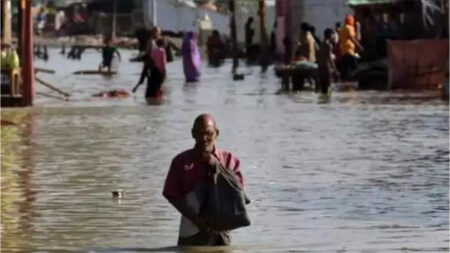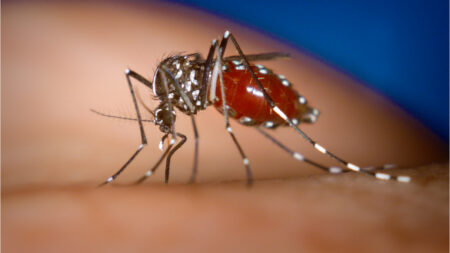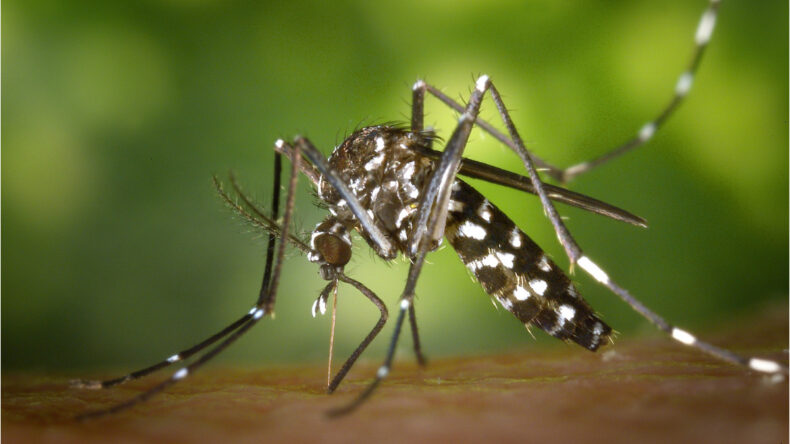As incessant rains relentlessly flood the nation, India finds itself grappling with a significant surge in the cases of dengue across multiple regions. While the fatalities, thankfully, remain meagre, the sheer number of reported cases has become a cause for concern. In the year 2022 alone, the nation witnessed a staggering 2,33,251 reported cases of dengue, with over 300 tragic deaths which have resulted from the viral infection.

Monsoon: A breeding ground for Dengue
Dengue, primarily transmitted by the Aedes mosquito, especially Aedes aegypti, becomes a formidable health challenge in warm and humid regions like India during the monsoons, affecting millions of people annually. The virus manifests in four distinct stages (DEN-1, DEN-2, DEN-3, and DEN-4), each offering lifelong immunity upon infection.
Characterized by high fever, severe headaches, muscle and joint pain, skin rash, and mild bleeding tendencies, dengue’s impact can escalate to life-threatening conditions such as dengue hemorrhagic fever and dengue shock syndrome. Unfortunately, no specific treatment is available for this ailment, leaving medical professionals with very limited options for managing the disease.
As the relentless heavy rainfall triggers floods in numerous regions across the country, efforts to drain excess water fall short, leaving certain areas waterlogged for prolonged periods. These conditions create a fertile breeding ground for the sudden surge in cases of this disease.
The Aedes mosquito thrives in stagnant water, becoming the vector responsible for the rapid spread of dengue, posing a grave threat to lives. The extended waterlogging in rain-soaked locations provides an ideal environment for these disease-carrying pests, leading to a rapid increase in the mosquito population and consequently, the number of viral infections, prompting heightened concerns among health experts.

How Officials have responded:
As a response to this alarming situation, various health departments are taking proactive measures to protect citizens from potential vector-borne diseases. The city of Delhi has issued advisories urging school students to wear full-sleeved clothes until November, to reduce their vulnerability to mosquito bites.
In Haryana, health department officials are closely monitoring individuals exhibiting viral-like symptoms, suspecting these cases to be potential early signs of the infections, especially considering the prevailing weather conditions.
Cities like Ludhiana have taken swift action to set up special wards dedicated to treating the patients affected by the disease, with 20 such wards already in place. Similarly, Kerala has tightened border control measures to prevent the spread of dengue cases into the state.

These initiatives indicate that health departments nationwide are gearing up to face a challenging period ahead, anticipating a surge in dengue cases and working tirelessly to minimize its impact on public health.
To combat the alarming rise of dengue cases, health authorities must continue implementing proactive measures to control mosquito breeding. Consistent action and community cooperation are imperative in eliminating stagnant water sources, where mosquitoes lay their eggs, and raising public awareness about the importance of preventative measures.
By focusing on mosquito control strategies and fostering public vigilance, the nation can better safeguard its population from the rising number of dengue infections during the monsoon season.
How we move forward:
As the threat of dengue looms, the collective efforts of various health authorities become crucial in preparing for and managing potential outbreaks. By adopting preventive measures, promptly identifying cases, and providing adequate medical facilities, authorities aim to mitigate the impact of dengue on public health.
Vigilance and swift action on a national level demonstrate the seriousness with which authorities are addressing the situation and their determination to safeguard communities from the risks posed by mosquito-borne illnesses. With united efforts and dedication, India can successfully overcome the challenges posed by dengue during this critical period.













